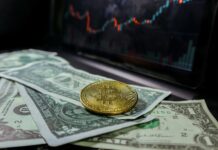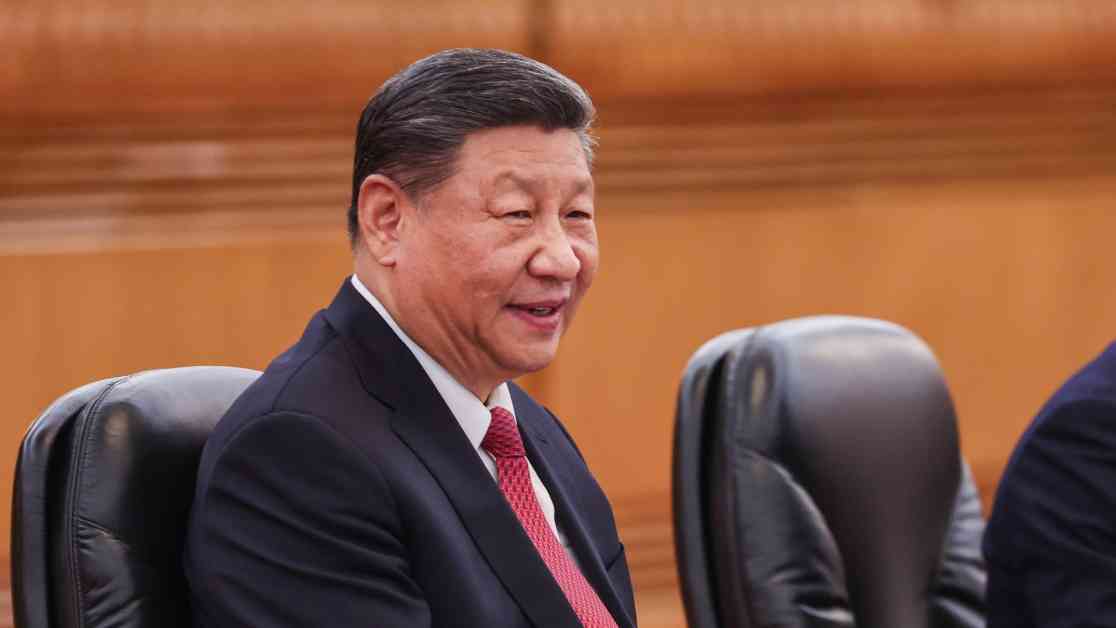Chinese President Xi Jinping recently addressed a group of top executives at a closed-door symposium in Beijing, signaling a strong show of support for the private sector amidst economic challenges. The meeting, which took place on February 5, 2025, emphasized the importance of entrepreneurs to China’s economy and aimed to boost optimism and growth in the tech sector.
President Xi’s presence at the symposium was seen as a significant gesture of support for the private sector, which has been grappling with issues such as lackluster domestic consumption, a real estate downturn, and external pressures like tariffs on exports. Peiqian Liu, an Asia economist at Fidelity International, highlighted the symbolic importance of Xi’s speech, suggesting that it could inspire a renewed sense of confidence and momentum in China’s economic landscape.
The timing of the meeting was crucial, as it coincided with increasing scrutiny of the Chinese tech sector in recent years. Lynn Song, chief economist at LNG, noted that the gathering could represent a turning point for the industry, indicating Beijing’s urgency to bolster the private sector amidst economic uncertainties. The potential easing of regulatory pressures on tech companies, as hinted by the return of prominent figures like Jack Ma, founder of Alibaba, signaled a shift in Beijing’s stance towards large tech corporations.
The significance of the private sector was underscored by a reported draft of China’s first basic law focused on private sector growth. The proposed legislation aimed to create a more favorable environment for private enterprises, recognizing their substantial contributions to the country’s GDP, trade, investment, tax revenue, and employment. The law was positioned as a key driver of high-quality growth and technological innovation, highlighting the pivotal role that private businesses play in China’s economic landscape.
The meeting brought together a diverse group of entrepreneurs, including notable figures such as Jack Ma, Ren Zhengfei of Huawei Technologies, Lei Jun of Xiaomi Corp, and Wang Xing of Meituan. Their presence at the event reflected a sense of unity and optimism among Chinese entrepreneurs, who had previously navigated a challenging regulatory environment. The gathering was seen as a confidence-booster for industry leaders, signaling a potential shift in Beijing’s regulatory approach towards large tech companies.
While the symposium did not indicate a complete reversal of China’s economic policies, it did demonstrate the government’s acknowledgment of the private sector’s vital role in driving growth and innovation. Alfredo Montufar-Helu, from The Conference Board, highlighted the importance of China’s private enterprises in enhancing the country’s technological capabilities and supporting economic development. The event was seen as a step towards fostering a more conducive environment for private businesses to thrive and contribute to China’s economic resilience.
Following the news of the symposium, the stock markets showed mixed reactions, with the CSI 300 index remaining relatively stable. However, the Hang Seng tech index experienced fluctuations, reflecting the market’s response to the meeting and its potential impact on tech-related stocks. The recent rally in Chinese equities, driven by advancements in AI technology showcased by startups like DeepSeek, suggested a growing interest in the country’s innovation landscape and the potential for a positive market outlook.
In conclusion, President Xi Jinping’s address to top executives underscored a pivotal moment for China’s private sector, signaling a shift towards greater support and recognition from the government. The symposium brought together key industry leaders, sparking optimism and confidence in the tech sector and broader economy. As China continues to navigate economic challenges and regulatory changes, the role of private enterprises remains essential in driving growth, innovation, and resilience in the country’s evolving economic landscape.

























